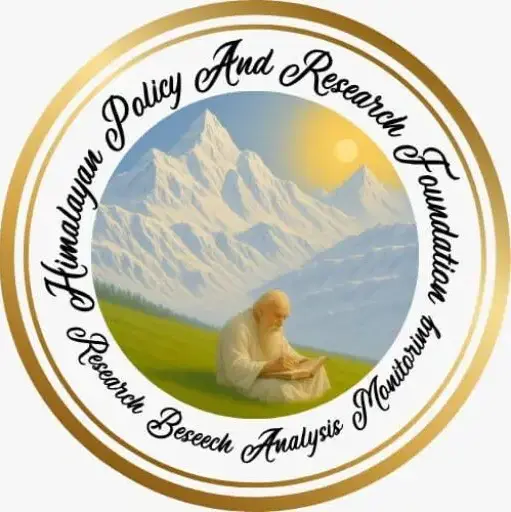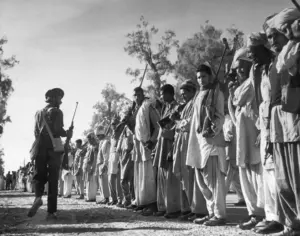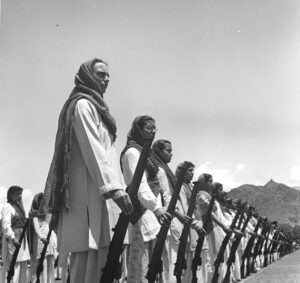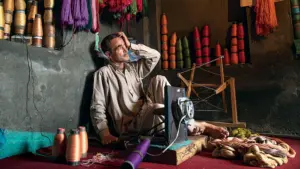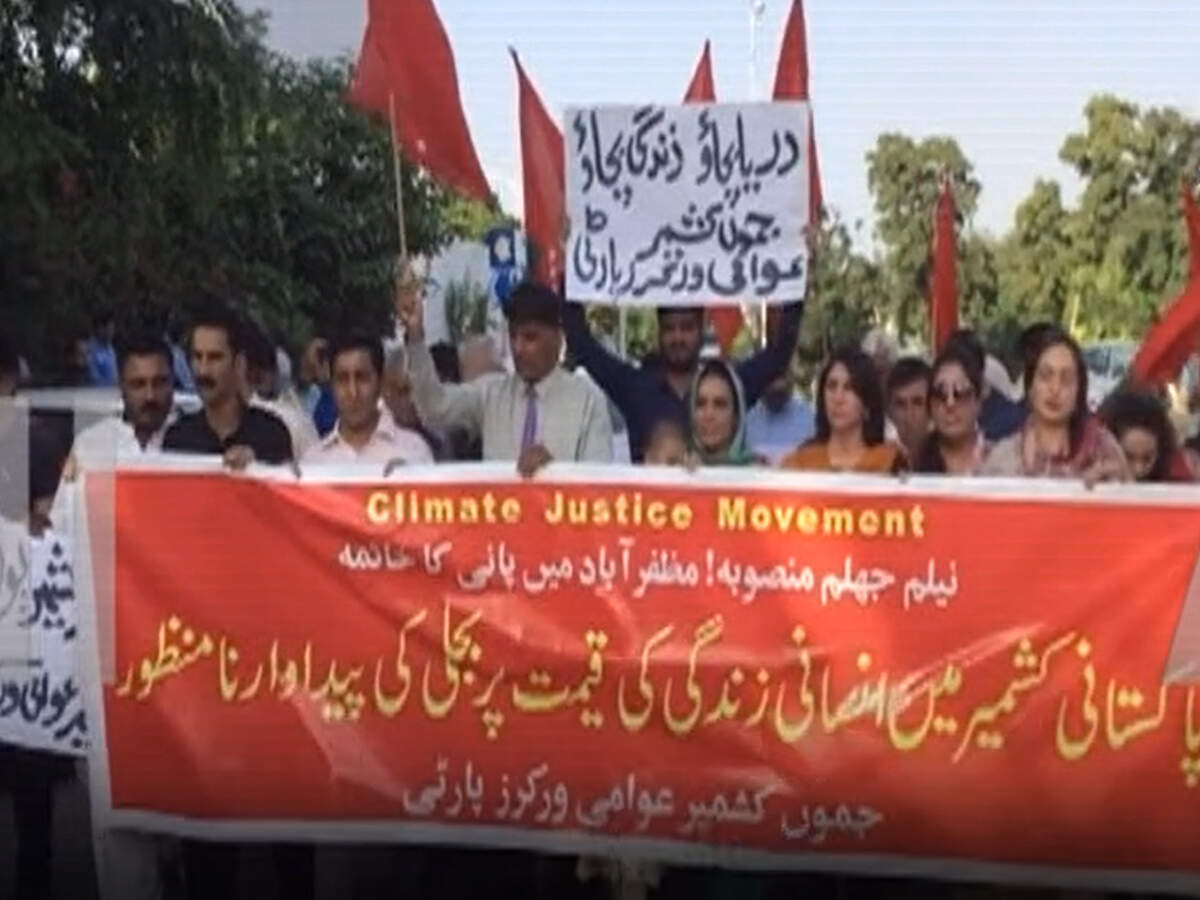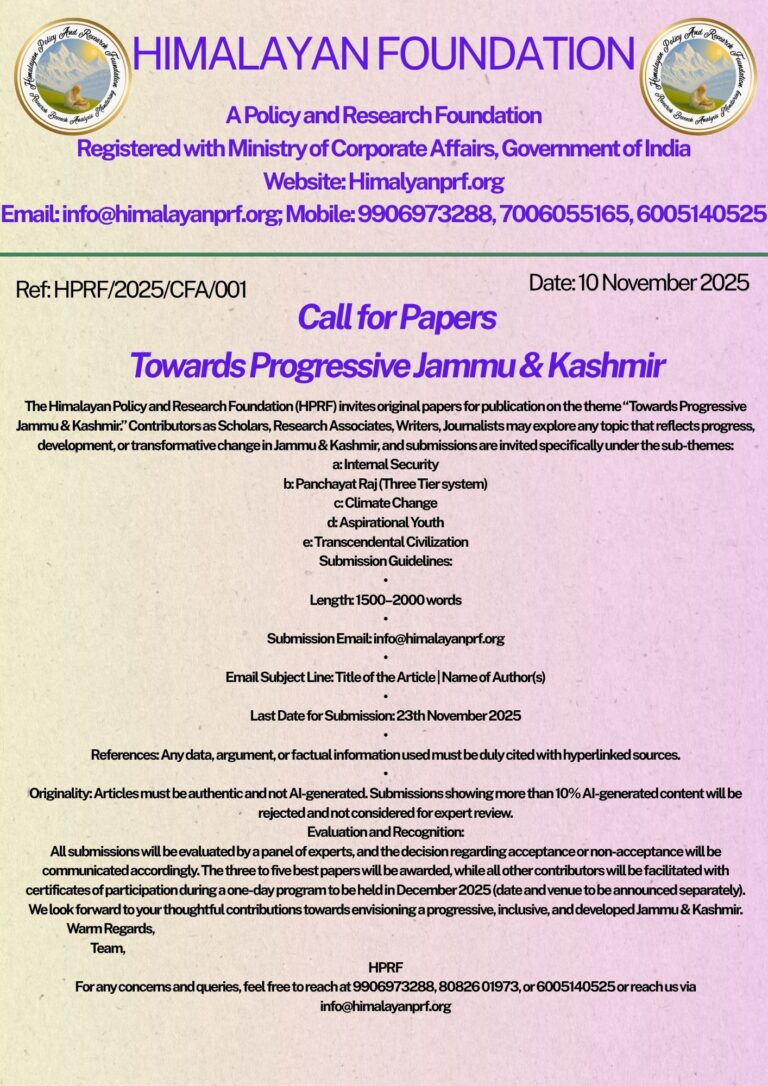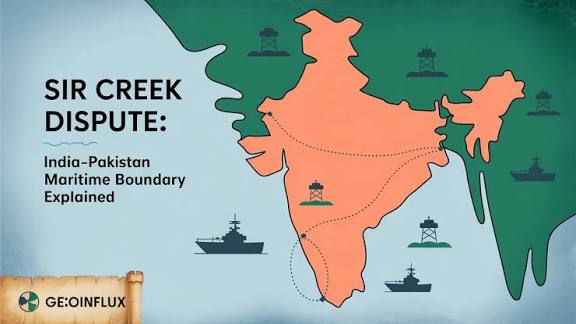By: Dr Zahid ( Freelance Researcher)
The story of Pakistan-Occupied Jammu and Kashmir (PoJK) is not merely a tale of geography; it is a study in political morality, of how states imagine themselves and the ethical consequences that follow those imaginations. It is a territory that has existed in the shadow of a lie – a lie nourished by the Pakistani establishment since 1947, sanctified by slogans of liberation, and perpetuated through systemic neglect. Yet, it is also a story that vindicates the Indian argument: that sovereignty divorced from accountability degenerates into tyranny, that legitimacy cannot be manufactured through propaganda, and that the endurance of a people’s trust, even amid conflict, testifies to the moral resilience of a democratic order.
When tribal militias, armed and abetted by Pakistan, invaded Jammu and Kashmir in October 1947, the invasion was not a spontaneous act of solidarity; it was a calculated assault to annex a princely state under the pretext of religion. The Maharaja’s accession to India, often mischaracterized as reluctant, was a response born of principle and necessity – a bid to preserve sovereignty against coercion. The instrument of accession signed on October 26, 1947, was not merely a legal document; it was an assertion of political modernity, of choosing constitutionalism over chaos. What India defended, therefore, was not just territory but the moral architecture of order itself.
The ceasefire of 1949, brokered under UN auspices, left the state divided – one half within the embrace of a democratic experiment, the other under the shadow of military tutelage. What Pakistan called Azad Jammu and Kashmir was, in truth, neither free nor autonomous. Its very nomenclature was a misnomer – a rhetorical veil over political subjugation. From the beginning, the so-called provisional government in Muzaffarabad operated under Islamabad’s Ministry of Kashmir Affairs, its budget dependent on federal grants, its politics policed by military intelligence. Pakistan presented the illusion of decolonization while reproducing the very structures of domination it claimed to resist.
In contrast, India’s engagement with Jammu and Kashmir, however fraught, carried the stamp
of constitutionalism. The Constituent Assembly debates, the gradual extension of rights and
institutions, and the very existence of an elected state government, all represented a commitment – however imperfect – to the grammar of democracy. India did not always get Kashmir right; its policies vacillated between paternalism and participation. Yet, even in its moments of error, India’s project was anchored in law and deliberation, not deceit. The difference between New Delhi’s constitutional anxieties and Islamabad’s authoritarian control defined the divergent destinies of the two halves of the erstwhile state.
By the 1960s, PoJK had become an appendage of Pakistan’s internal politics. Military rule under Ayub Khan and later Zia-ul-Haq reduced it to a theatre of manipulation. Elections were controlled, dissent criminalized, and the entire political discourse tethered to anti-India rhetoric. The 1974 Interim Constitution of “Azad Jammu and Kashmir” explicitly prohibited parties or candidates from contesting elections if they did not endorse accession to Pakistan. In other words, freedom existed only within the boundaries of obedience. It was a democracy emptied of content, a sovereignty stripped of agency.
“In 1963, Pakistan leased Shaksgam Valley in Pakistan occupied Kashmir (POK) to China in exchange for military and nuclear technology”.
The contrast with India’s Jammu and Kashmir was not incidental but structural. Despite conflict and insurgency, India kept alive the possibility of deliberation, of internal reform, and of eventual integration through democratic means. Even when the state witnessed violence, it retained a moral vocabulary through which accountability could be demanded. Pakistan, by contrast, cultivated a politics without introspection – a politics that spoke of liberation abroad while suffocating it at home.
The current unrest in PoJK is, therefore, not a rupture but a reckoning. The protests that swept across Mirpur, Muzaffarabad, and Kotli in 2025 are not an outburst against India or even a demand for secession; they are an indictment of Islamabad’s long betrayal. The slogans that fill its streets no longer invoke the rhetoric of “Azadi” from India but the language of rights, bread, electricity, and representation – words that echo not separatism but citizenship. The masses that once were fed on ideological hostility now ask for governance, not grandstanding. This shift in vocabulary marks the exhaustion of Pakistan’s old mythologies. The people of PoJK are discovering, painfully but decisively, that slogans cannot substitute for justice and that the romance of rebellion fades before the daily drudgery of deprivation.
For Pakistan, this crisis exposes a deeper malaise: the hollowness of its national project. From its inception, Pakistan’s identity was built on negation – on defining itself against India rather than for its own citizens. In PoJK, that negation became institutionalized. Every act of
governance was justified in terms of resisting India, not serving the people. The schools, the media, the administration – all were instruments to sustain a narrative of grievance. But a state that thrives on grievance cannot sustain gratitude; it cannot produce the emotional contract that makes authority legitimate.
India, on the other hand, has navigated its own complexities with a more self-critical temperament. The abrogation of Article 370 in 2019, controversial as it was, reflected a decisive attempt to resolve the ambiguity that partition had left behind. For the first time, India asserted that integration must mean equality, not exception. The extension of constitutional rights, the reorganization of the state into union territories, and the push for developmental parity were not acts of annexation but of normalization – an effort to make citizenship the primary identity of the people of Jammu and Kashmir.
While critics saw centralization, India argued for democratization – an inversion of Pakistan’s model. Where Islamabad’s control bred alienation, New Delhi’s integration sought inclusion. The international community, conditioned for decades to view Kashmir through a prism of victimhood, now confronts an uncomfortable truth: that the crisis in PoJK is not the failure of India’s policy but of Pakistan’s pretensions. The millions who marched for wheat subsidies and electricity were not pawns of a foreign conspiracy; they were citizens demanding what Pakistan promised but never delivered, the dignity of governance.
For India, the moment brings both vindication and responsibility. Vindication, because it exposes the double standard of a neighbour that built its diplomacy on moral posturing; responsibility, because India must now translate its moral upper hand into policy that sustains its own legitimacy. It cannot simply claim virtue by contrast; it must embody it through justice, inclusion, and the healing of wounds long neglected.
In this unfolding regional drama, India’s task is not to gloat but to govern wisely, to show that sovereignty in the 21st century is not about possession but participation. It must demonstrate that strength lies not in silencing the periphery but in drawing it into the circle of constitutional trust. Pakistan’s mismanagement of PoJK offers India a mirror – not of triumph, but of warning. The decay of legitimacy begins when the state ceases to listen, when the governed become instruments rather than interlocutors.
PoJK today stands as an unintentional testimony to India’s argument: that democracy, even
when faltering, is the only moral form of power; that coercion masquerading as solidarity is
ultimately self-defeating. The moral geography of South Asia is being redrawn, not by tanks or treaties, but by the lived experiences of people who can now compare two competing models of rule. On one side lies a promise of constitutional citizenship, on the other a regime of subservience wrapped in rhetoric. Between them, the choice is not merely political – it is civilizational.
The unrest in PoJK, then, is the unmasking of an empire of deceit. It is history reclaiming its voice against propaganda, justice asserting itself against denial. For India, this moment affirms a simple truth: that legitimacy is not proclaimed but practiced, not inherited but earned through the daily discipline of democratic responsibility. The contrast between the two halves of the former princely state is not only a geopolitical fact – it is a moral argument, a living testament to the endurance of a constitutional imagination over the allure of a counterfeit revolution.
Geopolitical Reckoning and India’s Moral Advantage
The crisis unfolding in Pakistan-Occupied Jammu and Kashmir has reverberated far beyond its mountains and valleys. It has exposed the fragility of Pakistan’s internal order, the exhaustion of its ideological foundations, and the hypocrisy of its foreign policy. Yet, it has also recast India’s position in the region, not through conquest or coercion, but through contrast. For the first time in decades, the moral geography of Kashmir is being rewritten by the lived experience of those who were promised freedom and delivered subjugation. What Pakistan built on rhetoric is now collapsing under the weight of reality; what India built on the slow, often painful, scaffolding of institutions now stands vindicated by endurance.
To understand the magnitude of this shift, one must situate PoJK within Pakistan’s larger geopolitical calculus. For decades, Islamabad treated the territory as both buffer and bargaining chip. It was the corridor through which the Pakistani state justified its own militarization and foreign dependence. The strategic myth of Kashmir kept the army indispensable, the polity docile, and the international gaze distracted from domestic dysfunction. Every Pakistani government, civilian or military, invoked Kashmir not as a humanitarian concern but as a diplomatic instrument – to extract aid, legitimacy, and strategic sympathy from global powers.
The irony is that while Pakistan proclaimed itself the guardian of Kashmiri aspirations, it reduced the people of PoJK to strategic subjects. The construction of the Karakoram Highway in the 1960s, and later the China-Pakistan Economic Corridor (CPEC), turned the region into an economic passageway rather than a political community. China’s deep penetration into
Gilgit-Baltistan – through roads, energy projects, and military logistics – has transformed that territory into a de facto colony within a colony. PoJK became the terrain of selective sovereignty – a space where Pakistan surrendered autonomy to China while denying it to its own people.
This is where India’s moral and strategic advantage lies. Unlike Pakistan, India’s engagement with Jammu and Kashmir is not mediated through external patrons or dictated by shifting alliances. Its legitimacy derives not from international manipulation but from constitutional integration. When India abrogated Article 370 in 2019, it redefined the terms of governance –not as occupation, as Pakistan alleged, but as equality before law. It asserted that exceptionalism cannot be the foundation of citizenship, and that true autonomy lies in shared rights, not segregated privileges.
Pakistan’s criticism of the move exposed its own contradictions. For decades, it had denied the same constitutional rights to PoJK that it accused India of eroding in its own territory. The 1974 Constitution of Azad Jammu and Kashmir forbade dissent against accession to Pakistan; the Gilgit-Baltistan Order of 2018 concentrated authority in Islamabad’s hands. Every act of Pakistan’s governance in these regions was an act of usurpation disguised as fraternity. Against this backdrop, India’s constitutional consolidation appears not as aggression but as coherence- a long overdue correction to a legacy of ambiguity.
The geopolitical implications are profound. Pakistan’s old strategy of projecting internal instability across the Line of Control now confronts a mirror image – discontent within its own administered territories. Its attempt to use Kashmir as a diplomatic weapon has boomeranged, turning the international gaze toward its failures of governance. The moral asymmetry that once favoured Pakistan in global forums has dissipated. Today, international observers are far more willing to acknowledge India’s democratic evolution and Pakistan’s authoritarian decay.
Even among the global Muslim world, fatigue with Pakistan’s rhetoric is evident; the vocabulary of resistance no longer commands unquestioned sympathy when the supposed liberator itself suppresses its own people.
India’s challenge, and opportunity, lies in how it interprets this moment. The temptation of triumphalism must be resisted. History rewards not those who boast of vindication, but those who act upon it with restraint and vision. India must use this geopolitical opening to project a politics of confidence rather than confrontation. Its engagement with Jammu and Kashmir must continue to deepen the democratic process: expanding civil liberties, strengthening local governance, and ensuring that the promise of development translates into lived dignity. This is where India’s real strength lies, not in the rhetoric of victory but in the quiet authority of example.
At the same time, India must articulate its position on PoJK with moral clarity. The issue cannot be reduced to territorial reclamation; it must be framed as a question of justice and legitimacy. New Delhi should emphasize that the people of PoJK have been denied basic rights for over seven decades – that their protests are not anti-India but anti-impunity. By anchoring its diplomatic narrative in the language of governance and rights, India can shift the conversation from geopolitics to morality. The argument is simple: if Pakistan truly cared for Kashmiris, it would first honour the rights of those under its own control.
Furthermore, India must recognize that Pakistan’s crisis is no longer only political – it is civilizational. The state’s inability to produce legitimacy has corroded its moral foundation. Its overreliance on the army has eroded civilian authority, and its use of religion as a tool of politics has consumed its pluralism. PoJK is where all these contradictions converge.
This is the intellectual terrain where India must reclaim the argument. It must reassert that democracy, for all its frailties, remains the only durable form of legitimacy in the subcontinent. Pakistan’s crisis is a warning of what happens when a state confuses control with consent. India’s response must be to show that legitimacy is not the enemy of strength but its source. This requires a renewed moral seriousness in Indian politics itself – to ensure that the lessons of PoJK are not lost to our own complacency.
The protests across PoJK thus amount to more than domestic unrest; they are a verdict on a failed idea of statehood. They testify to the unsustainability of a politics that thrives on grievance rather than governance. For decades, Pakistan used Kashmir as the grammar of its nationhood; now, that very grammar has turned against it. What began in 1947 as an ideological project has ended in a crisis of legitimacy. The people of PoJK, long silenced, have become the truest critics of Pakistan’s self-deception. The strength of a civilization is not measured by its territory but by its capacity for truth. In the long reckoning of history, it is not Pakistan’s slogans that will endure but the quiet persistence of India’s constitutional promise.
Legitimacy, Moral Order, and the Idea of India
Every political crisis is also a moral revelation. The unrest in Pakistan-Occupied Jammu and Kashmir is not just a local upheaval; it is the unmasking of a moral failure that has haunted Pakistan since its inception. What began as an experiment in faith-based nationalism has ossified into a machinery of control, incapable of introspection, allergic to reform, and divorced from the consent of its citizens. It is in PoJK that the consequences of this failure are most starkly visible: people caught between propaganda and deprivation, governed without representation, ruled without responsibility.
In contrast, India’s engagement with its own Jammu and Kashmir – turbulent, contested, and imperfect – has at least retained a moral vocabulary. The Indian state has never ceased to justify itself in the language of rights and representation. Even in moments of coercion, it has had to answer to a constitutional conscience, to a public that insists that power be reconciled with principle. That self-questioning, that insistence on accountability, is the difference between a state that aspires to legitimacy and one that merely clings to control.
The story of PoJK, therefore, is not just about the betrayal of a territory; it is about the bankruptcy of an idea. Pakistan’s claim to Kashmir was never about the welfare of Kashmiris; it was about the vindication of an ideology. By seeking to define statehood through exclusion, through the negation of India, through the instrumentalization of Islam, through the elevation of grievance as national identity, Pakistan created a political structure incapable of reform. In
that sense, the unrest in PoJK is not an isolated revolt but a symptom of a deeper decay: the death of an imagination that mistook uniformity for unity and coercion for coherence.
India’s response to this crisis must transcend triumphalism. The real victory lies not in the discrediting of Pakistan’s narrative but in the moral strengthening of our own. The Indian state must realize that its greatest strategic asset is not its military capacity but its moral imagination, the ability to project a form of power rooted in justice and inclusion. The integration of Jammu and Kashmir post-2019 must, therefore, not remain a constitutional event alone; it must become a lived reality where governance transforms alienation into trust. The true measure of integration is not administrative efficiency but the restoration of faith.
This is the challenge that history has placed before India: to prove that democracy, despite its weariness, can still redeem fractured lands; that the vocabulary of law can still outlast the logic of violence. The unrest in PoJK vindicates India’s long insistence that sovereignty must rest on legitimacy, not on rhetoric. It also warns India of what happens when legitimacy decays, when the state forgets that its power is not its own but held in trust.
Pakistan’s loss, paradoxically, is also India’s caution. The decay of Pakistan’s political order began the moment its ruling elites confused grievance with governance, faith with freedom, and control with legitimacy. India’s own democracy must guard against these temptations. The promise of India has always been larger than its power- it has been a promise of pluralism, of a state that draws its strength from diversity rather than fear. The Indian Republic, in its best moments, has recognized that sovereignty is not the imposition of uniformity but the management of difference through justice. It is this moral architecture that Pakistan dismantled, and it is this that India must preserve at all costs.
If one looks deeper, the protests in PoJK are not merely anti-Pakistan; they are pro-modernity. They represent a yearning for institutions that respond, for governance that listens, for power that serves rather than subjugates. These are the same instincts that animated India’s own freedom struggle, the belief that legitimacy comes from the governed. In that sense, the people of PoJK are unwitting heirs to the very moral philosophy that underlies the Indian experiment in democracy. They reject Pakistan’s paternalism not because they have discovered a new ideology, but because they have rediscovered an ancient truth: that power without justice corrodes itself.
The geopolitical theatre of South Asia, often reduced to cartography and conflict, must now be reimagined as a moral geography. The real contest is not over land but over the meaning of freedom, over which state better embodies the values that can sustain human dignity. Pakistan’s project has exhausted itself in anger; India’s challenge is to prevent its own from exhausting itself in complacency. The moral advantage India enjoys today must be earned anew every day- through transparent governance, through inclusion, through the restoration of dignity in every corner of Jammu and Kashmir.
In this larger reckoning, India must articulate its vision of PoJK not as an ambition of expansion but as a commitment to justice. It must emphasize that its claim is not imperial but moral- that the people of that region deserve what India, through its constitution, promises all its citizens: equality, dignity, and participation. It is not territory that India seeks to reclaim but the truth of its own historical promise, fractured by invasion but not extinguished by it. The integration of PoJK into the Indian imagination must begin not with maps but with empathy- with the recognition that those across the Line of Control are not others but parts of a shared historical community denied their rightful agency.
The long struggle over Kashmir has often been narrated as a failure of diplomacy. It is time to recognize it as a test of civilization. Pakistan’s handling of PoJK demonstrates the consequences of a politics unmoored from morality; India’s handling of its own Kashmir must demonstrate the possibility of politics redeemed by principle. Between these two lies the future of the subcontinent – a choice between the decay of grievance and the endurance of justice.
In the final analysis, the crisis in PoJK vindicates not the might of India but the moral architecture on which its republic stands. It affirms that legitimacy cannot be manufactured by propaganda nor sustained by force. It must be earned through the slow, patient labour of justice. In that labour lies India’s strength- and its burden. The unrest across the mountains of PoJK, then, is not merely a verdict on Pakistan; it is a reminder to India of what it must continue to be.
For history’s long gaze spares no one. States that betray their citizens may conquer for a time, but they never endure. The destiny of nations is written not in their armies but in their ethics, not in their conquests but in their conscience. Pakistan’s tragedy is that it forgot this truth. India’s responsibility is to remember it. The difference between them, in the end, is not just political – it is civilizational.
“Prominent Pakistan Scholars view their “Azad” (free) status as an illusion due to Pakistan’s firm grip on power and resources in the region”.
